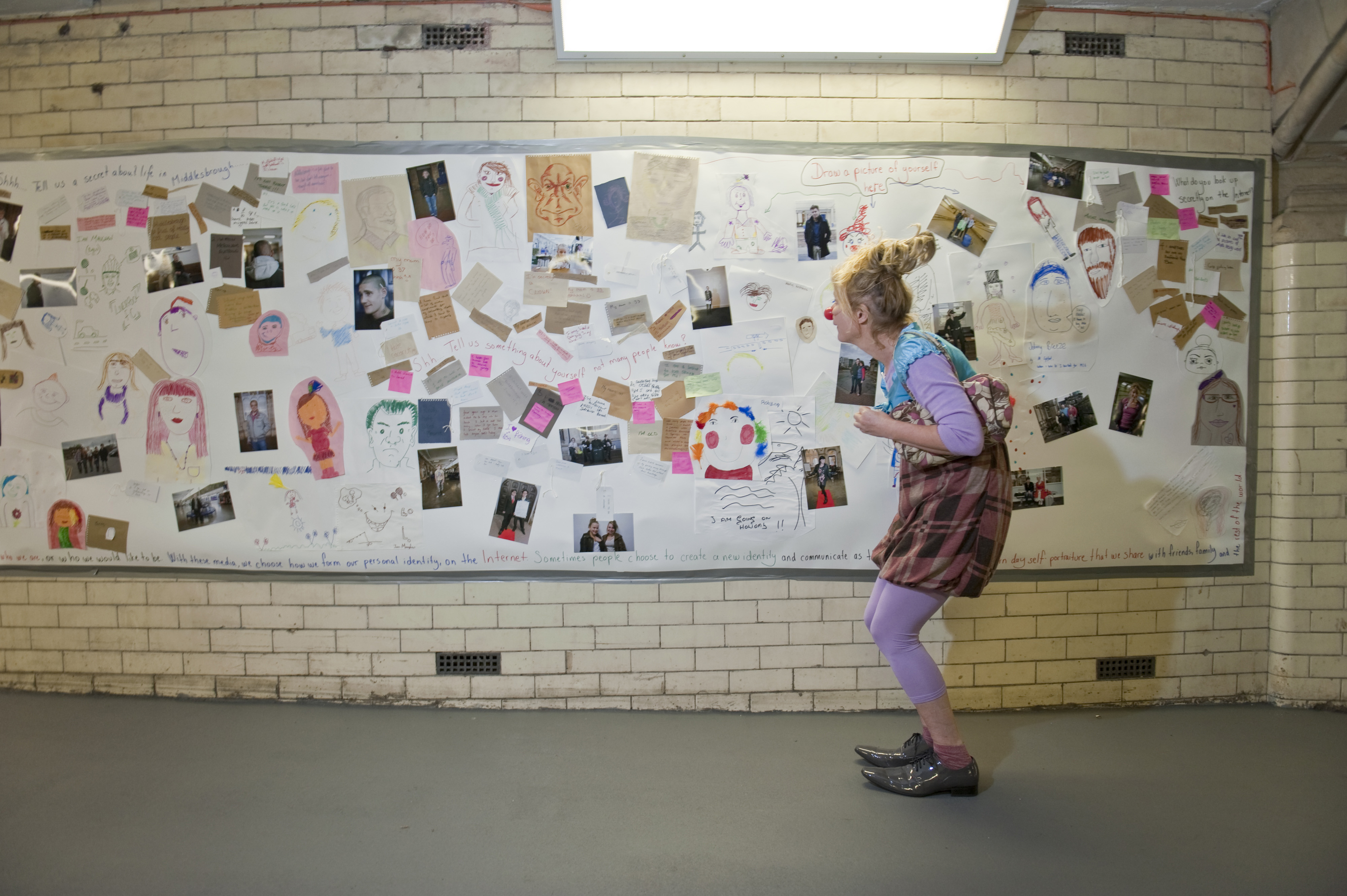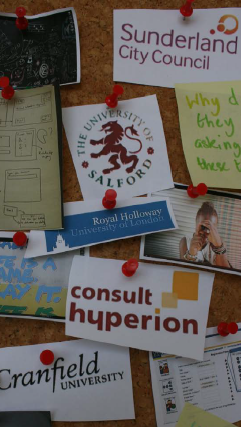Exploring Privacy: Your Privacy and the Internet – A 2010 Festival of Social Science Event.
“Exploring privacy: your privacy and the internet” took place on March 13th, in Winter Gardens, Sunderland. The event formed part of the nationwide Festival of Social Science which is run by the Economic and Social Research Council (ESRC) to feature events from some of the country’s leading social scientists the festival and celebrates the very best of British Social Science research and how it influences our social, economic and political lives – both now and in the future.
Background
This event was an activity aimed at members of the general public and was designed to promote audience participation in the important topic of on-line privacy and consent. Participation took place from the start, when the audience was invited to use an electronic voting tool to take part in a short privacy survey. Next, physical theatre company, Bimbilibausa delivered a short play about a case of mistaken identity online and the privacy implications that ensue from it.
The play was developed from the privacy themes identified in the first year of VOME’s community research conducted here in Sunderland. Again, the audience participated by using the voting tool to vote on the privacy practices that the play’s lead character, Margareth, should have followed. The event closed with a discussion on on-line privacy issues and practical steps we all might take on-line. During the discussion the actors talked about their own experiences and how developed the play had changed their own on-line privacy practices.
The Play
The Context
The play is set in an office environment and examines the relationship between the three characters Margareth, John and “the Boss”. Using theatre enables us to explore how privacy and identity traverse on and off line environments.
The Film of the Play
Here you can watch the key scenes from the play, interlaced with explanations from the actors:
The film starts with an introduction to Bimbilibausa and then shows the opening scenes from the play. The opening scenes show a working day in the office and are introduced to the three characters and the metaphor of “computer inputting” is used to reflect the relationship hierarchy in the office.
The interactions in the office explores the ways in which :
- Office flirting develops through computer use
- Bullying / sexual harassment can be exacerbated through computer use
- On-line fights / wars take place
These opening scenes also reflect on the incongruity between office face to face interactions and interaction through the computer (ie computer interaction more intense than face to face)
The film explores the techniques for developing the play. Much of the source material came from VOME’s initial research output.
Next, the scenes focus on on-line privacy issues and show Margareth going on-line for her own use and enters a variety of sites some of which are pop ups, she goes to on-line purchasing, moves through a variety of sites. She ends up on a dating site.
In the last scenes, the topics of on and off line interaction are fused together where Margareth uses the Internet to control her office relationships.
Bimbilibausa theatre company at the ESRC Festival of Social Science for the VOME privacy project from VOME on Vimeo.
Reflections from the actors
“We chose to work in clown form as the red nose is the worlds smallest mask. Using masks for communication can distort realities, heighten the strength of intention, hide and also reveal information. The red nose primarily reveals information. The material and research we received from VOME helped us make these connections and parallels were drawn to create this first piece.
Fools historically intrude into conventional order. By placing the setting of the piece in an conventional office it represents our society as is and allows the audience to make real connections. Whilst following the research based storyline the audience engages with the characters and their actions that ultimately mirrors the general current behaviour of parts of our society.
The work we are doing with VOME is currently unique and therefore new and exciting for us to work with. It connects an age old tradition of looking at society and where we’re at with the added presence of ‘the clown’ or ‘the fool’ within this structure. Questions are thus raised about the prevailing order of the current state, creating debates and thought which thus forms directions for future behaviour and action.”


